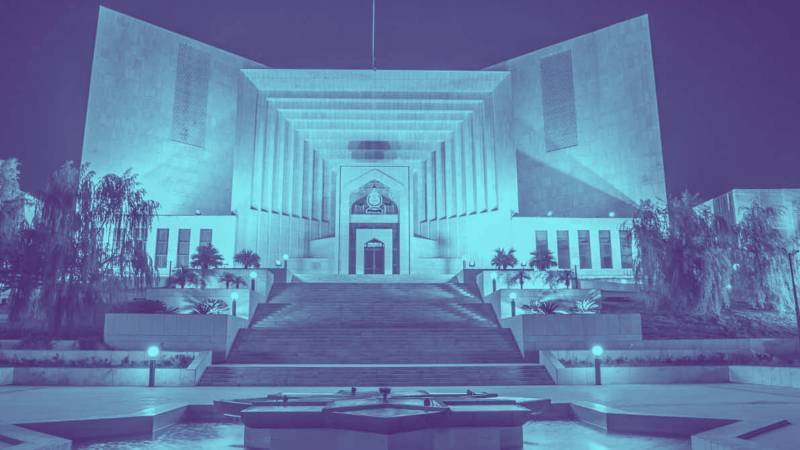
The Federal Interior Ministry Thursday approached the Supreme Court to challenge the acquittal of former prime minister and Pakistan Tehreek-e-Insaf (PTI) founder Imran Khan and former foreign minister Shah Mehmood Qureshi in the cipher case.
On June 3, a division bench of the Islamabad High Court (IHC) comprising Chief Justice Aamer Farooq and Justice Miangul Hassan Aurangzeb announced a short verdict after accepting the appeals of the former premier and foreign minister against their convictions in the case by the special court. It is pertinent to note here that the IHC has yet to issue detailed reasons for acquitting Imran and Qureshi in a case the government had long touted as 'open and shut'.
However, citing certain grounds, the interior ministry filed an appeal in the top court on Thursday, requesting it to set aside the IHC's judgment.
In their appeal, the government contended that Imran and Qureshi's conduct throughout the trial was non-cooperative. Moreover, the government accused the two of making every possible effort to delay proceedings.
"The record of the trial court is evident of the fact that 65 miscellaneous applications were moved by the respondents, [which] were heard and decided by the trial court," it said.
"The matter was a number of times adjourned on the request of the respondents or their counsels," it added.
"The witnesses remained present in the court, but their cross-examination was not carried out by the defense counsels."
It also contended that the Special Court, which heard the cipher case, appointed defense counsels at state expense and completed the trial.
"The respondents tried to defeat the cause of justice by indefinite procrastination."
The government argued that the IHC division bench did not consider this aspect while acquitting Imran and Qureshi.
The appeal contended that it is a settled principle of law that if a court comes to the conclusion that a trial was not carried out as prescribed in Article 10-A of the Constitution, then the only legal way out is to remand the matter to the trial court for giving a proper opportunity to hold a fair trial. The appeal stated that IHC's judgment is perverse, arbitrary, and contrary to the material available on the record, and as such, it is liable to be set aside.
"The Official Secrets Act, 1923, does not provide the provision of filing an appeal against the judgment of the learned Special Judge," the appeal stated.
"The right of appeal is a statutory right, and it cannot be availed unless it is expressly conferred by law," it added.
It went on to argue that IHC's judgment did not appreciate that the high court lacks jurisdiction or power to create rights which are not provided by the Constitution or a validly enacted law.
"The Official Secrets Act, 1923 is not a schedule offence of the Pakistan Criminal Law (Amendment) Act, 1958," the appeal contended, further arguing that Section 13 (6) of the OSA, 1923 empowers the appropriate government that if it thinks it fit by general or special order, direct that the procedure for the trial of an offence under section 5 and 9 shall be as prescribed for offences under the Pakistan Criminal Law (Amendment) Act, 1958.
"It is nowhere present in the statute that for filing an appeal the provisions of Pakistan Criminal Law (Amendment) Act, 1958, shall be applicable," the appeal stated, adding, "It is an established principle of law that where the legislature has not provided something in the language of the law, the court cannot travel beyond its jurisdiction and read something to the law as the same would be ultra vires the powers available to the court under the constitution and would constitute an order without jurisdiction."
The appeal next contended that the prosecution had produced overwhelming evidence in support of its case.
"Moreover, the admission made by the accused during the cross-examination as well as in examination under Section 342 Criminal Procedure Code (CrPC), which are sufficient to establish the case beyond any shadow of a doubt."
The prosecution, the government argued, has produced the documentary evidence along with its forensic analysis through reliable and confidence-inspiring evidence that was not negated during the cross-examination. However, the division bench of IHC did not appreciate this aspect while acquitting the respondents. As such, the impugned judgment is not sustainable in the eyes of the law.
It is submitted that the high court has not appreciated the evidence available on the record as well as the admission of the accused, while acquitting the respondents, as such the impugned judgment is not sustainable in the eyes of law.
It remains to be seen if the top court accepts the petition and lists it for a hearing.

